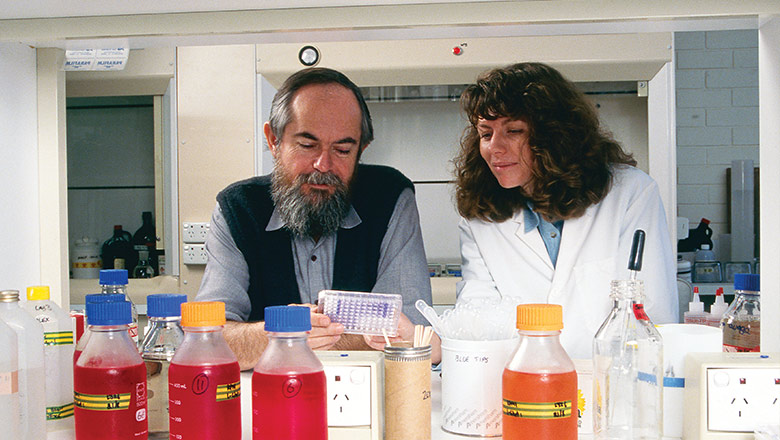Search
Research
Impaired interferon response in plasmacytoid dendritic cells from children with persistent wheezeImpaired interferon response and allergic sensitization may contribute to virus-induced wheeze and asthma development in young children. Plasmacytoid dendritic cells play a key role in antiviral immunity as critical producers of type I interferons.

The Respiratory Environmental Health team conducts research in early life determinants of lung growth and development, respiratory environmental health, and mechanisms of airway dysfunction in asthma and other respiratory disease.

The Foundations of Lung Disease Team is focused on improving the diagnosis, treatment, and lifelong care of childhood lung disease.

News & Events
NHMRC funding awarded to support child health researchThe Kids Research Institute Australia researchers have been awarded more than $10 million in research funding from the National Health and Medical Research Council (NHMRC).

News & Events
Switch on the immune system earlyFindings by Professor Pat Holt revealed researchers had been heading down the wrong path in their battle strategy against respiratory allergy and asthma.

News & Events
Overseas trip will help unlock the asthma puzzleOne in ten Australians have asthma and Dr Kimberley Wang from The Kids Research Institute Australia is on a mission to find out what causes it.
News & Events
Volunteers needed for world-first trial to prevent asthmaAustralian scientists have today launched a world first research trial into a treatment that could prevent asthma in high risk children.
Research
Thoracic Society of Australia and New Zealand (TSANZ) position statement on chronic suppurative lung disease and bronchiectasis in children, adolescents and adults in Australia and New ZealandThis position statement, updated from the 2015 guidelines for managing Australian and New Zealand children/adolescents and adults with chronic suppurative lung disease (CSLD) and bronchiectasis, resulted from systematic literature searches by a multi-disciplinary team that included consumers.
Research
Childhood vaccination and allergy: A systematic review and meta-analysisAs the rise in prevalence of allergic diseases worldwide corresponds in time with increasing infant vaccination, it has been hypothesized that childhood vaccination may increase the risk of allergic disease. We aimed to synthesize the literature on the association between childhood vaccination and allergy.
Research
Real world effectiveness of early ensitrelvir treatment in patients with SARS-CoV-2, a retrospective case seriesEnsitrelvir, a 3C-like protease inhibitor, received emergency approval in Japan in November 2022 for treating non-hospitalized patients with mild-to-moderate COVID-19. However, confirmation of its real-world clinical effectiveness is limited.
